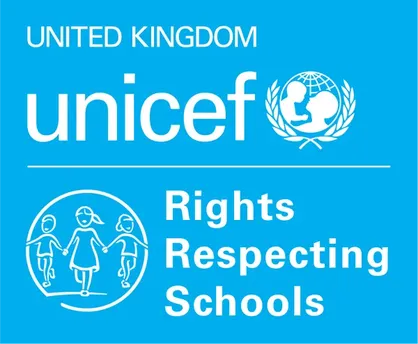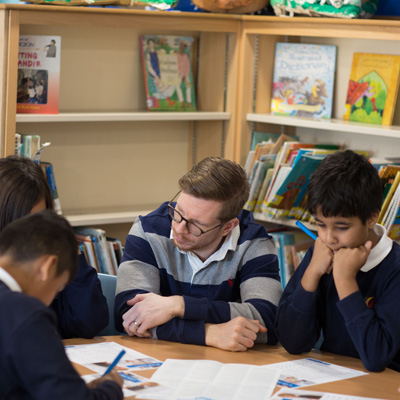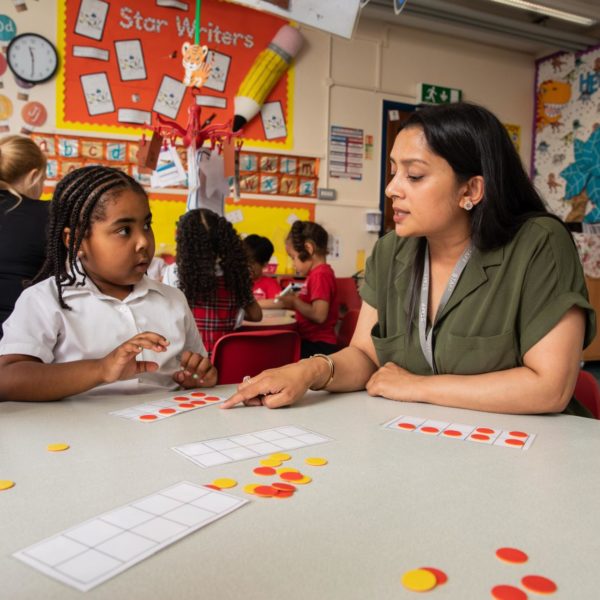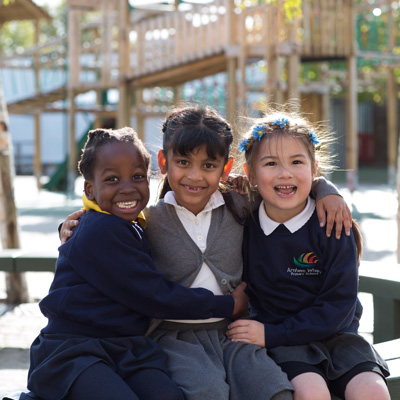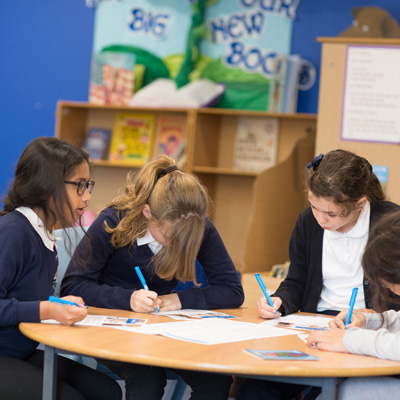The journey to Gold Reaccreditation at Alun School.
Emma McIntyre, RRSA Lead and Healthy Schools Coordinator shares how Alun School became Rights Respecting.
Becoming a Rights Respecting School
“In 2014 our school developed the Our Rights charter, reducing the long list of school rules on display. These formed the basis of all conversations in school, including resolution of disputes and discussions on behaviour.
“We further explored the Convention on the Rights of the Child during our journey to achieving the Welsh Network of Healthy School Schemes National Quality Award in autumn 2016, and we signed up to Rights Respecting Schools in 2017 to further our work on children’s rights.
“The RRSA framework progresses a whole school approach for promotion of UNCRC which is just what our community was looking for. A previous approach might have been delivering rights knowledge and understanding in PSE and Humanities, but rights apply to all subject areas and in everything we do as staff and adults as duty bearers, not just one discreet area.
“How a school operates supports children in accessing their rights, so it is important young people understand this; thus the whole-school approach framework UNCEF UK offers.
“We are now a Reaccredited Gold Rights Respecting School. No school journey ends at Gold, there are never-ending ways to incorporate rights into the school community, ideas from UNICEF UK, other RRSA schools and within the school community.”
Highlights from the school’s Rights Respecting journey
“Alun School has been involved with SHRN (the School Health Research Network) since 2015. Today, our approach to SHRN is underpinned by our work on children’s rights. The school council reviewed the SHRN generated report released in April, identifying key headlines and areas to focus on. Year 7-13 tutor groups will also look at sub-areas of the report, look at the highlights and focus on a few of the report results.
“It is a whole school approach, which empowers pupils to have their say on the findings, actions to support further work and the school action plan. All staff, pupils and parents and carers are aware of SHRN and the roles it plays in Articles 12 and 24. Underpinning our approach to SHRN with children’s rights has encouraged pupils to participate, have their say on health and wellbeing and PSE in school, using real life data to hold conversations between right holders and duty bearers.
“To boost motivation and wellbeing after covid, pupil voice suggested having a wellbeing wall at the front of school promoting five ways to wellbeing and including quotes from a range of role models. The school community supported this, and a wellbeing wall was created. This was a great project focusing on Article 24 and several articles across equality, diversity, and education. Pupils designed the wall and worked with staff to bring their concept to life.”
Overcoming challenges
“Before signing up to the Rights Respecting Schools Award we asked ourselves: ‘How do we as a school community embed UNCRC throughout our school ethos?’
“Signing up to RRSA was the first step. Staff attended training to understand more about the Convention, RRSA and actions that could be carried out to support the work. Staff knowledge, understanding and commitment across the school was another important foundation step. Staff who attended RRSA training could then share knowledge of the UNCRC and RRSA, upskilling staff and ensuring they were up to date in their roles as duty bearers.
“Consistent messaging was important too, incorporating rights and respect language across everything we do.
“Actions implemented here included signposting articles in the school development plan, policies (including pupil friendly policies), meeting items on agendas (including pupil meeting agendas), mapping out articles referenced in different subjects, mapping out and highlighting rights linked to the delivery of assemblies and awareness days.
“Pupil voice still plays a crucial role in the actions taken, for example the development of a school charter and UNCRC information posters around school. We also have used the large RRSA posters showing different articles around the school.
“Visual reminders in the school environment contribute to the ethos as does lesson content and the rights and respect language used every day.”
Advice and tips for other Rights Respecting schools
- There are many articles in the UNCRC, which can seem overwhelming to pupils, staff, parents and carers. Referring to relevant articles through everyday activities and communications helps to facilitate conversations and developing the rights language within the community. Revisiting school and class charters supports this.
- In response to recent surveys a focus for us is expanding the school council and pupil voice groups. The school council has always fed from house councils through the pastoral route of tutor groups. Going forward it is now going to include representatives from a range of pupil voice groups across school including Mental Health Champions, LGBTQ+ Support Space and others.
- Educating about rights in a secondary school setting to new pupils moving from Y6 to Y7 as a transition project could be an exciting peer to peer project, with KS3/KS4 pupils leading.
School context: The school has over 1,500 pupils on roll including 300 in the sixth form. Around 11% of pupils are eligible for free school meals. Nearly all pupils speak English as their first language and come from a white, British background. The school has a specialist resource for hearing impaired pupils.
